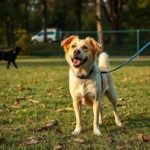
Introduction
Welcoming a new puppy into your home is an exciting adventure filled with joy, laughter, and plenty of puppy cuddles. However, one of the most crucial aspects of raising a puppy is building its confidence. A confident puppy is not only happier but also exhibits better behavior, is easier to train, and has a smoother journey through life as a socialized adult dog.
In this guide, we will delve into how to build a puppy’s confidence, exploring its significance, practical strategies, and long-term approaches. By understanding the nuances of puppy confidence, you can create a nurturing environment that fosters a resilient and well-adjusted canine companion.
Understanding Puppy Confidence
What is Puppy Confidence?
Puppy confidence refers to a puppy’s belief in its abilities and comfort in its surroundings. This confidence manifests through various behaviors, such as exploring new environments, interacting with people and other animals, and displaying curiosity.
Confident puppies are typically more willing to engage in play, try new things, and adapt to changing situations without excessive fear or anxiety. Conversely, a lack of confidence can lead to shy, fearful, or aggressive behaviors, making it essential to address this aspect early in your puppy’s development.
Signs of a Confident Puppy
Recognizing a confident puppy is relatively straightforward. Look for the following body language indicators:
- Tail Position: A happy, wagging tail held at a neutral position indicates confidence.
- Posture: A relaxed stance with an upright body suggests a secure mindset.
- Playfulness: Engaging in play with enthusiasm and curiosity is a great sign.
- Curiosity: Confident puppies often explore their environment, sniffing and investigating with interest.
Importance of Confidence in Puppies
Building a puppy’s confidence is vital for several reasons:
- Long-term Mental Health: Confident puppies are less likely to develop anxiety or behavioral issues as they grow.
- Training and Socialization: A confident puppy is more responsive to training, making it easier to teach commands and social skills.
- Overall Happiness: Confidence contributes to a puppy’s ability to enjoy life, interact positively with others, and navigate new experiences.
Factors Influencing Puppy Confidence
Early Socialization
One of the most impactful factors in building a puppy’s confidence is early socialization. Puppies undergo a critical socialization period from about three to fourteen weeks of age, making it essential to expose them to a variety of environments, people, and other animals. This exposure helps them learn how to interact in different situations without fear.
Genetics and Breed Differences
Genetics also play a significant role in a puppy’s temperament and confidence levels. Some breeds are naturally more confident, while others may be predisposed to shyness. For instance, Labrador Retrievers and Golden Retrievers are often known for their friendly and outgoing nature, while some smaller breeds may be more cautious or timid. Understanding these differences can help shape your approach to confidence-building.
Owner’s Role in Building Confidence
As a puppy owner, your behavior and training style significantly influence your puppy’s confidence. Creating a supportive and positive environment is essential. This includes:
- Using encouraging language and tone.
- Avoiding harsh corrections that could instill fear.
- Providing consistent routines that help the puppy feel secure.
Practical Steps to Build a Puppy’s Confidence
Positive Reinforcement Training
One of the most effective methods for building a puppy’s confidence is through positive reinforcement training. This technique involves rewarding desired behaviors with treats, praise, or playtime. Benefits include:
- Encouraging puppies to try new tasks without fear of punishment.
- Building a trusting relationship between you and your puppy.
Examples of training techniques include:
- Clicker Training: Using a clicker to mark desired behaviors, followed by a reward.
- Treats: Offering treats for good behavior during training sessions to reinforce learning.
Gradual Exposure to New Experiences
Introducing your puppy to new sights, sounds, and smells is crucial for confidence building. Here are steps to ensure positive experiences:
- Start Slow: Begin with low-stress environments.
- Use Treats and Praise: Reward your puppy for exploring or encountering new stimuli.
- Gradual Increase: Slowly increase the complexity of the experiences as your puppy becomes more comfortable.
Structured Playtime and Socialization
Structured playtime is vital for developing a puppy’s confidence. Engaging in play helps puppies learn social cues, bite inhibition, and how to interact with others. Here’s how to ensure safe socialization:
- Supervised Playdates: Arrange playdates with vaccinated, well-behaved dogs.
- Puppy Classes: Enroll in classes that focus on socialization and play.
Creating a Safe Space
At home, it’s essential to create a comfortable environment for your puppy. A designated “safe zone” can help your puppy feel secure. Consider the following:
- Comfortable Bed: Provide a cozy spot where your puppy can retreat.
- Calm Environment: Minimize loud noises and chaotic activities in this space.
Dealing with Fear and Anxiety
Recognizing Fearful Behavior
Understanding signs of fear and anxiety in puppies is crucial for addressing their needs. Common signs include:
- Tucked Tail: A tail that is tucked between the legs indicates fear.
- Avoidance: A puppy that hides or avoids interaction may be feeling anxious.
Differentiating between fear and shyness is also important. While shy puppies may take time to warm up, fearful puppies often exhibit more pronounced signs of distress.
Techniques to Address Fear
To help your puppy overcome fear, consider the following techniques:
- Gradual Desensitization: Slowly expose your puppy to the fear-inducing stimuli in a controlled manner.
- Counter-Conditioning: Pair the fearful experience with something positive, like treats or playtime, to change the puppy’s emotional response.
When to Seek Professional Help
If your puppy shows persistent fear or anxiety, it may be time to seek professional help. Indicators that professional training or behavior consultation is necessary include:
- Severe fear responses that impede daily life.
- Aggressive behavior toward people or other animals.
Researching and finding a qualified trainer or behaviorist can provide additional strategies tailored to your puppy’s needs.
Long-term Strategies for Confidence Building
Ongoing Training and Challenges
Building a puppy’s confidence is an ongoing journey. Continued training not only reinforces good behavior but also presents new challenges that can boost confidence. Consider:
- Advanced Commands: Teach new commands beyond the basics, such as “spin” or “fetch.”
- Trick Training: Engaging in fun tricks can enhance your puppy’s self-esteem as it learns new skills.
Regular Socialization Opportunities
Maintaining regular socialization opportunities is essential, even beyond the puppy stage. This can include:
- Community Events: Participate in local dog-friendly events or gatherings.
- Puppy Classes: Enroll in advanced puppy classes to facilitate ongoing socialization.
Monitoring Progress and Adjusting Strategies
Keeping track of your puppy’s progress is vital for understanding what works best for them. Consider:
- Progress Journal: Maintain a journal to document your puppy’s experiences, reactions, and improvements.
- Technique Adjustments: Be flexible in adjusting your techniques based on your puppy’s responses and comfort levels.
Conclusion
In summary, building a puppy’s confidence is a multifaceted process that requires patience, understanding, and consistent effort. By recognizing the importance of confidence in a puppy’s life and implementing practical strategies, you can help ensure that your furry friend grows into a well-adjusted, happy adult dog.
Remember to take your time, celebrate small victories, and always provide a supportive environment. Your dedication to fostering confidence will pay off in the form of a loyal and joyful companion.
Sharing experiences with others can also be a great way to learn and grow as a puppy owner. Don’t hesitate to connect with fellow dog lovers and share your insights or ask for advice as you embark on this rewarding journey.









